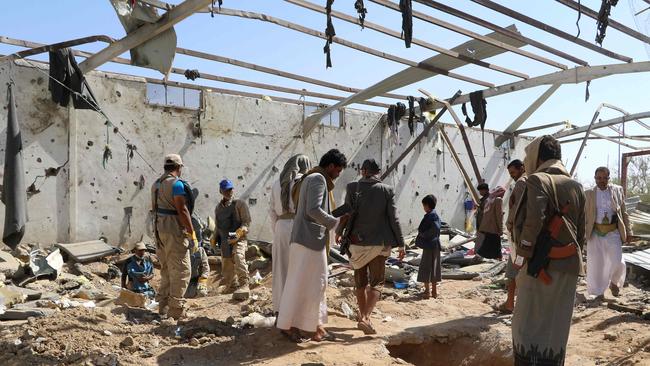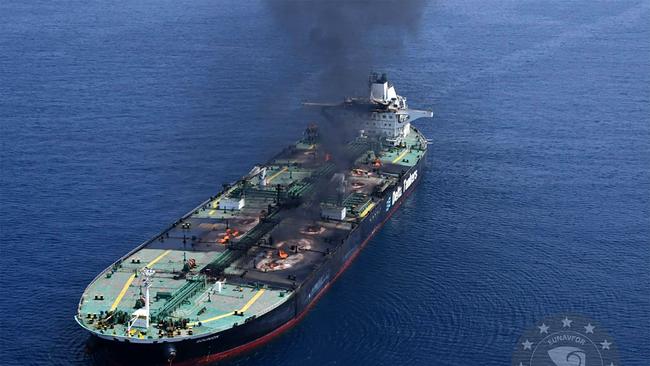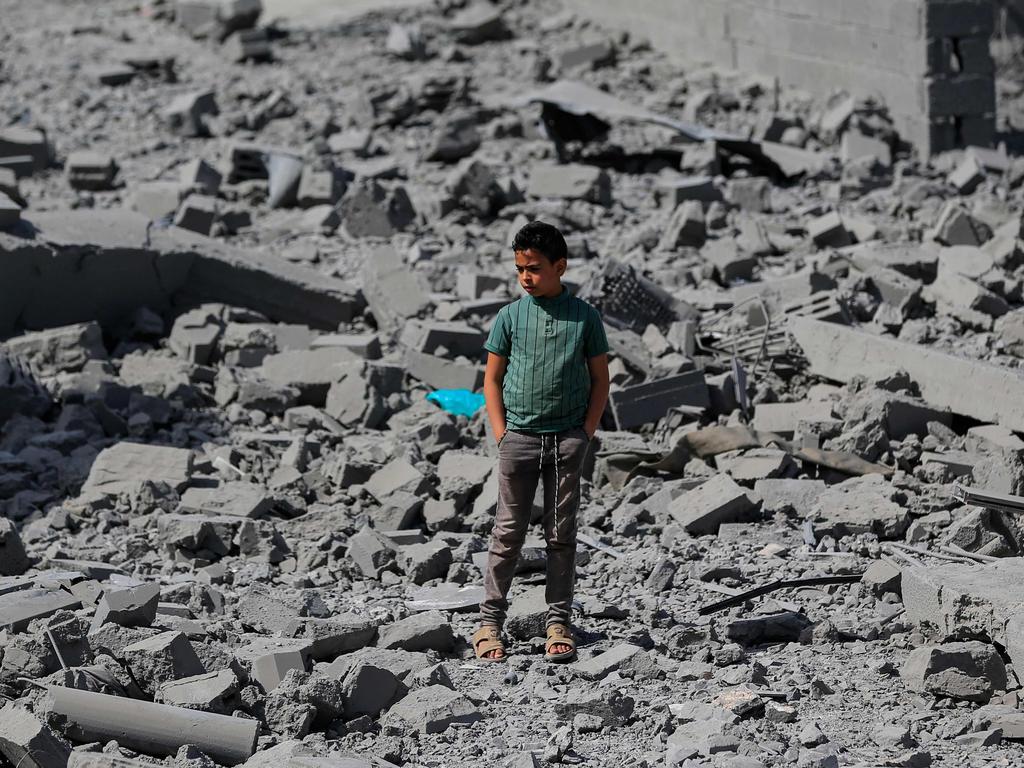Trump declares truce with Houthis but Israel still at risk
The intensifying conflict had risked complicating Trump’s nascent nuclear negotiations with Iran.

When President Trump began his military campaign against Houthi militants in mid-March, he vowed to pull out all the stops to end the militants’ attacks against international shipping in the Red Sea and nearby waters.
“It isn’t even a fair fight, and never will be. They will be completely annihilated,” Trump declared on social media in the first week of the operation.
Yet it wasn’t until Monday, after weeks of US bombardment, that the Houthi militants finally acceded to Trump’s demands to halt their missile and drone attacks on shipping.
Even then, it was less than clear whether the Houthis had entirely “capitulated,” as Trump claimed, or had agreed to something short of that.
After Trump’s Oval Office announcement of a truce in which the two sides agreed not to target each other, the Houthis immediately vowed to continue attacks against Israel. International shipping would be safeguarded, according to a statement by Oman, which mediated the agreement that left ambiguous whether a Houthi pledge to halt attacks applied only to American vessels.
A Houthi spokesman later told Al Jazeera the group would continue to target Israeli ships, which in the past have also led to attacks on ships with limited or no connection to Israel.
In another sign that a truce might be fragile, the Navy was investigating whether one of the two US aircraft carriers in the region might have been targeted Tuesday in an unsuccessful missile attack, a defense official said.
Trump’s announcement came as a surprise to Israel, an Israeli official said. Israel is concerned about the development, but it is too early to assess the implications, the official said.
From the start, the Pentagon said the goal of its strikes in Yemen wasn’t regime change but to reopen shipping lanes. And for Trump, halting the conflict now might be preferable to prolonging military attacks against a foe that was overmatched technologically but seemed prepared to absorb the punishment.
The intensifying conflict risked complicating Trump’s nascent nuclear negotiations with Iran, a backer of the Houthis. In March, Trump had said Iran was responsible for arming, financing and aiding the Houthis with intelligence, and vowed to hold Tehran responsible.
The lengthening US bombing campaign also raised the possibility that the White House would become ensnared in an open-ended forever war in a distant part of the globe as Trump prepared for a major trip this month to Saudi Arabia, Qatar and the United Arab Emirates.
It was the Biden administration that started the US campaign in Yemen in early 2024, after Houthis began sporadic attacks on Israel and international shipping to show support for Hamas, whose October 2023 attack on Israel led to an Israeli invasion of Gaza.
The US sent warships to try to protect international shipping, and responded to attacks with airstrikes. Wary of sparking a wider Middle East war, the Biden administration’s response was largely defensive, aimed at protecting ships at sea and knocking out missiles and launchers on land, retired Army Gen. Joseph Votel, a former head of U.S. Central Command, said earlier this year.
The Trump White House stepped up the military campaign, including by mounting attacks on Houthi leaders, drawing on a plan by Gen. Erik Kurilla, the current head of US
Central Command, who had long favored more aggressive action.
Escalating its response, the Pentagon sent two aircraft carrier battle groups to the Middle East and deployed half a dozen B-2 stealth bombers to Diego Garcia, an island in the Indian Ocean. More than 1,000 targets have been hit, and the strikes have significantly reduced the number of attempted Houthi attacks on shipping, most of which have been ineffective, US officials have said.

In March, Defence Secretary Pete Hegseth extended the deployment of the aircraft carrier USS Harry S. Truman in the region and sent a second carrier, USS Carl Vinson, which arrived in the Red Sea earlier this month. The Truman strike group is slated to leave the Middle East in the coming days, a Defense official said.
While the US military suffered no serious casualties, the operation has had its setbacks.
Seven MQ-9 Reaper drones have been lost over Yemen since the beginning of March. Last week, an F/A-18 jet fell off the deck of the Truman and sank. On Tuesday, another F/A-18 was lost when a fighter landing on the carrier’s deck plunged off the side after a cable meant to stop the plane failed, according to the Defense official. The two-person crew managed to safely eject.
While Trump cast the truce as a lopsided victory for the US, the picture will be far more mixed if the Houthis continue firing missiles at Israel and at vessels in the Red Sea heading to Israel, said Daniel Shapiro, a former senior Pentagon official.
“If it is confirmed that the Houthis will cease targeting American ships, and that opens up space for freedom of navigation, that is a win,” said Shapiro, who is now at the Atlantic Council. “But it is a modest win if it doesn’t end the Houthi attacks on Israel or on what they broadly define as Israeli-affiliated shipping.”
A ballistic missile fired from Yemen struck near Israel’s main airport on Sunday, marking a rare case in which a missile fired at a significant target by the group wasn’t intercepted by Israeli air defenses.
The announcement of the truce, which came after Israel carried out two days of retaliatory strikes against the Houthis that it coordinated with the US, appeared to take some current and former Israeli officials by surprise.
“There appears to be a US deal with the Houthis that doesn’t cover Houthi aggression toward Israel,” Jonathan Conricus, a retired Israeli lieutenant colonel who served as an

Israeli military spokesman, wrote in a social-media post. “As long as they attack Israel at the behest of Iran, the region won’t be at peace.”
Trump said he was convinced the Houthis no longer wanted to tangle with Washington. But he appeared to acknowledge that the militants’ tug of war with Israel fell outside the scope of his newly minted truce.
Trump said he would discuss it “if something happens with Israel and the Houthis.”
Wall Street Journal






To join the conversation, please log in. Don't have an account? Register
Join the conversation, you are commenting as Logout